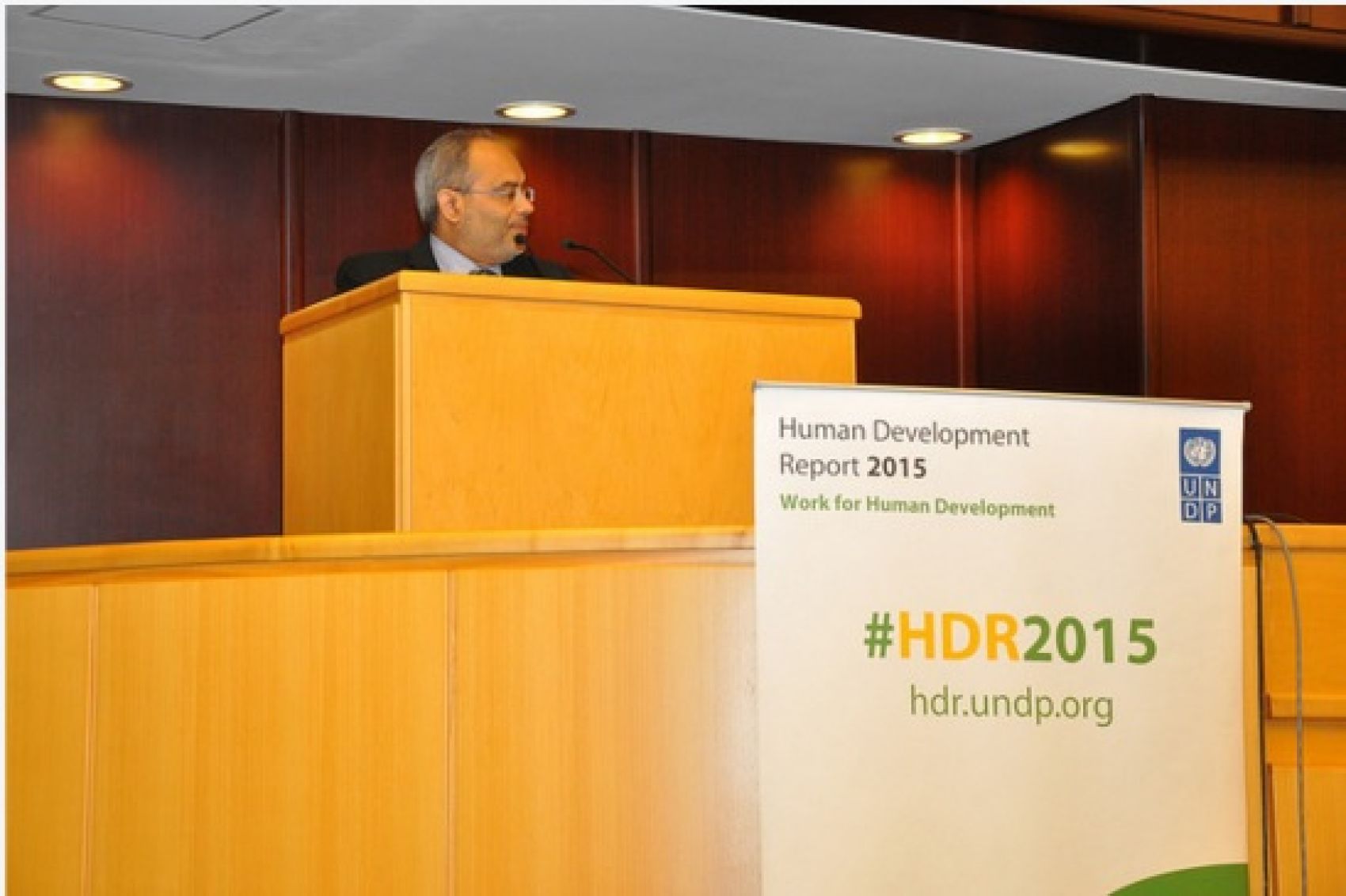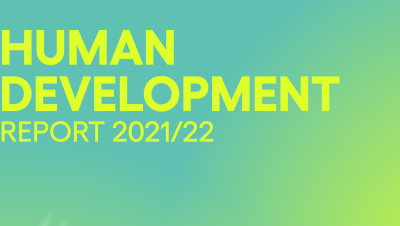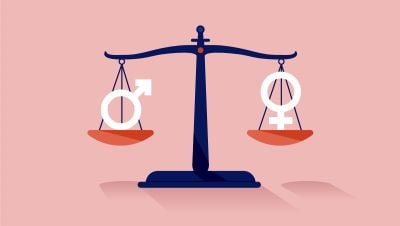It gives me great pleasure to share this platform for the launch of one the most anticipated reports of every year. This year has proved pivotal for the global development agenda setting. Because Addis Ababa has played a critical role in it. By successfully hosting and chairing the Third International Conference on Financing for Development the Government of Ethiopia created the momentum that we saw producing results throughout the year, including the just ended 21st Conference of the Parties of the Climate Change Convention in Paris. Mr. Prime Minister your leadership and commitment was critical for the approval of the Addis Ababa Action Agenda. It is therefore befitting for you to conclude the year with the global launch of a report that complements so well the messages of this momentous year.
The theme of the report, “Work for Human Development”, speaks to the key priority of the African continent, namely structural transformation that would allow for job creation and inclusive development. The report recognizes tremendous progress, albeit uneven across regions, translated into improvement in life expectancy, education, access to clean water and basic sanitation as well as increase in per capita income. This progress is also biased for all regions towards men as corroborated by the gender inequality index.
Africa in general, and the Sub-Saharan region in particular, registered an annual Human Development Index growth of 1.08% on average for the period 1990-2014, positioning the region as the third best performer after South and East Asia and the Pacific.
The Report also highlights the remaining challenges which include a range of issues from persistent poverty, rising inequalities, vulnerabilities to shocks and risks and climate change. All of these issues are extremely relevant and in sync with Africa’s own Agenda 2063. Please allow me to highlight three key areas that demonstrate the linkages.
The Human Development Report argues that enhancing human development through work requires policies and strategies in three broad areas: creating job opportunities, ensuring workers’ well-being and developing targeted actions. This adds momentum to the continent’s priority to create jobs. The Common African Position on the Post 2015 Development Agenda as well as Agenda 2063 state the same. More importantly all the 14 actions to which the African leadership committed to concretize Agenda 2063 are either explicitly related to job creation or to an enabling environment for the same. The First Ten Year Implementation Plan of Agenda 2063 aims at increasing per capita income by 50% from its 2013 level while reducing unemployment rate by at least 25%. To reach these goals, ECA has been vocal for the African leadership to operate a structural transformation, with bold industrial policies that promote value addition, economic diversification and regional integration. The materialization of such continental ambition requires also both synergies across member States and a customization of the African Agenda to national plans across countries and regions.
The Human Development Report further addresses the imperative and urgency of shifting to sustainable work in the line of SDGs. The three dimensions -termination, transformation and creation- suggested to promote sustainable work, generate both opportunities and challenges. With world leaders currently addressing means and ways to mitigate climate change, to adapt to its irreversible impacts and reap out its obvious opportunities, there is a need to position Africa to be the leader of a carbon conversion of manufacturing with the full use of the potential for green industrialization. That will be, by the way, the theme of ECA’s Economic Report on Africa in 2016.Unlike other parts of the world fearful of losing jobs from obsolete power due to abatement and energy efficiency, Africa is well positioned to lead on hydro and other renewable energies overtaking coal, which while remaining the cheapest source of energy for the industrialization, has also been one of the greatest pollutants. As a result of abatement and mitigation policies, the market capitalization of the four largest US coal companies dropped from USD 22 billion in 2010 to just USD 1.2 billion in May 2015. Poland alone has shutdown 37 coal mines and laid off 269.000 workers in the last 16 years. Africa has more to offer in clean and renewable energy than any other region. It can generate new areas of what the report defines as sustainable work. Hydro-power potential is estimated at around 1,750 terawatt-hours and geo-thermal energy estimated at 9,000 Megawatt. 0.3% of Africa’s solar generating potential could supply all the energy requirements of the European Union.
Finally the biggest challenge for the continent is to actually convert this potential into tangible infrastructure by creating an enabling environment and raising its human capital skills as specified both in the Report and Agenda 2063. In fact most jobs related to industrialization and energy development require Science, Technology, Engineering and Mathematics (STEM) competencies where more trained brains are needed. The adaptation for these requirements has to be fast for Africa to be able to create modern and decent jobs. Gender bias in STEM education has to be addressed upstream to make these jobs opportunities evenly accessible.
Ladies and gentleman,
The changing nature of employment, occupational patterns, phenomena of jobless growth, ageing and demographic shifts and automation and technology developments are creating exceptional levels of complexity and, may I say, anxiety. The more skilled the individual the more global are its chances. The less skilled the individual the more restricted its mobility and opportunities will be. This Report addresses the question of how can work enhance human development? The Report takes a large perspective of the concept work to account for conventional jobs, unpaid care work as well as voluntary work and creative work. It highlights progress and challenges and depicts different factors affecting the world of work. It gives us precious insights on the imbalances of paid and unpaid work as well the imperative and urgency to move to what it terms sustainable work. Finally, it proposes to enhance human development gains through work, by suggesting a set of strategies to create job opportunities, to ensure workers’ well-being and to develop targeted actions that will transform current realities. In other words, it is a bold report.
In Africa we like bold, we need ambition, we promote change, and we expect disruption.
Thank you for kind attention.


